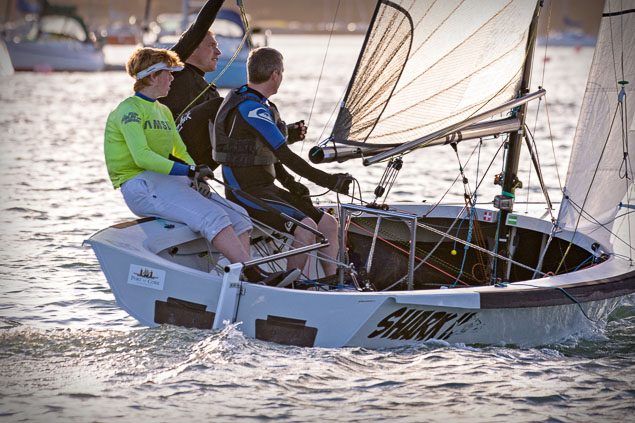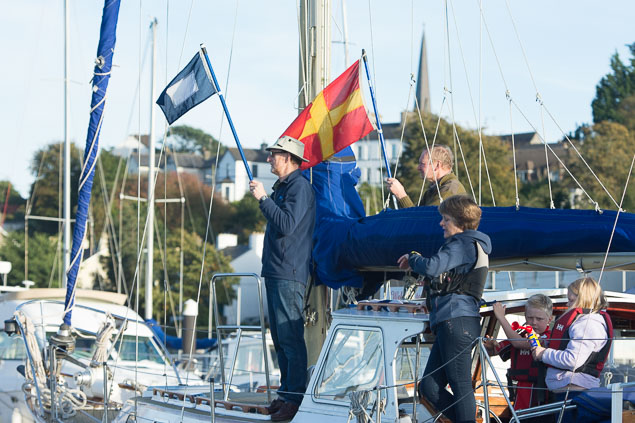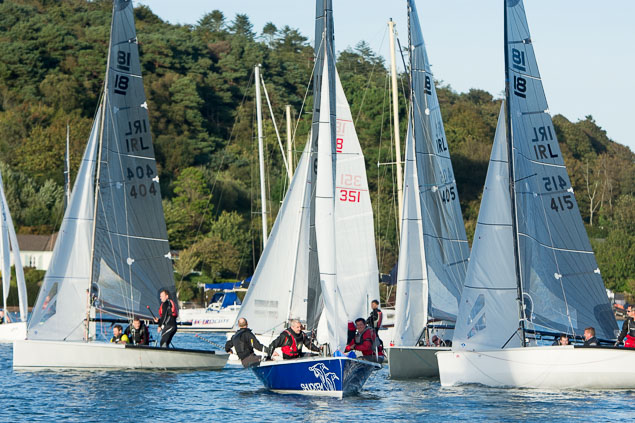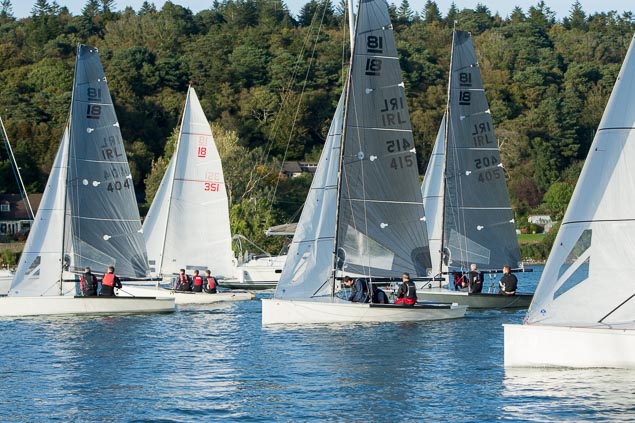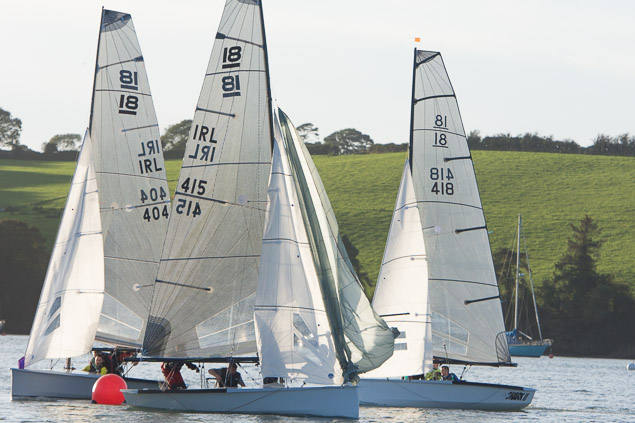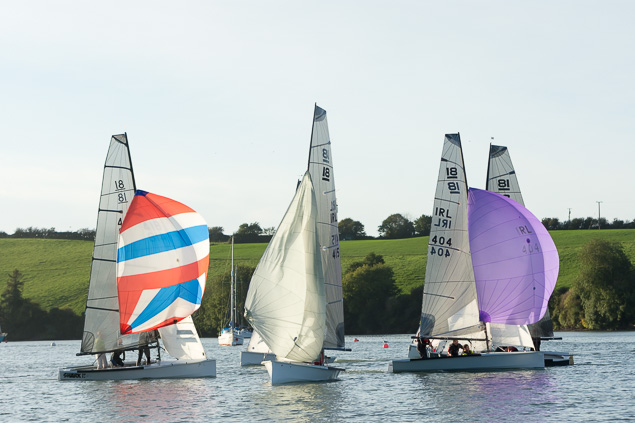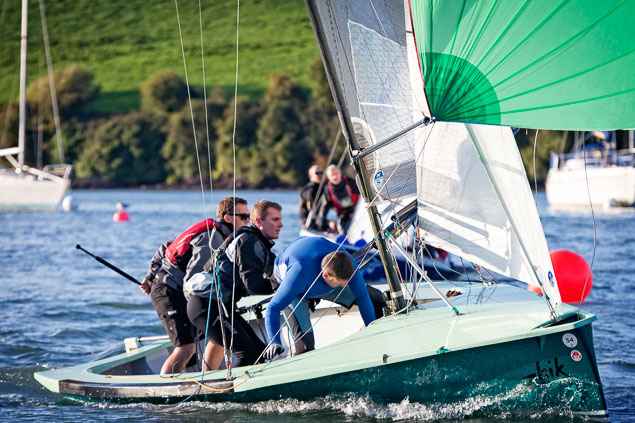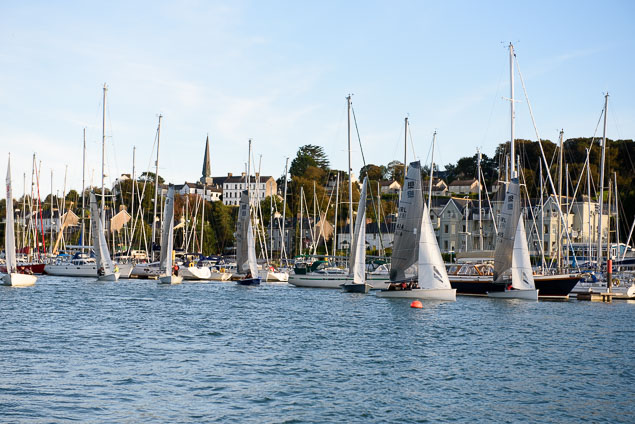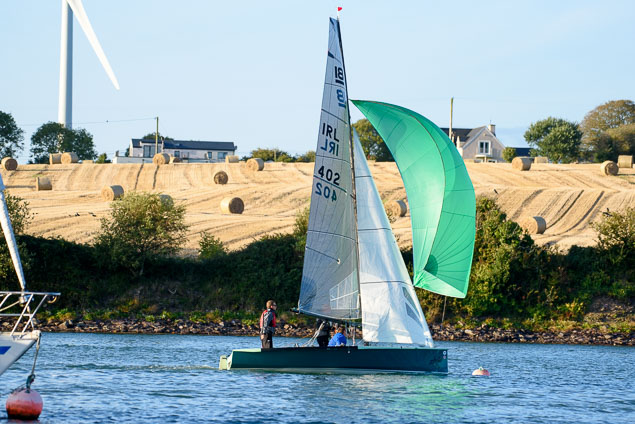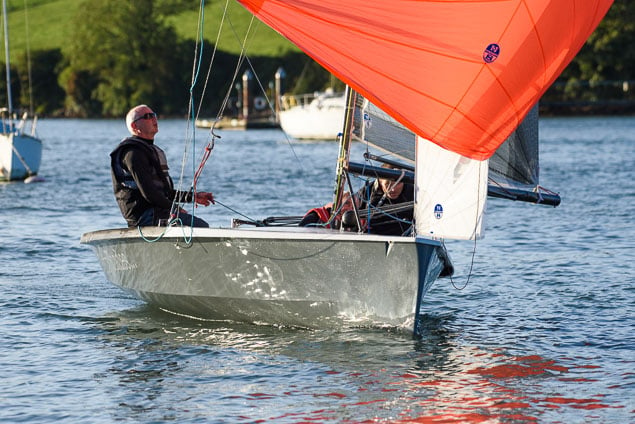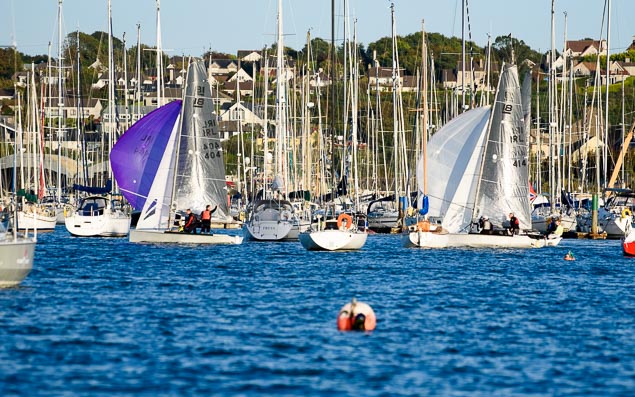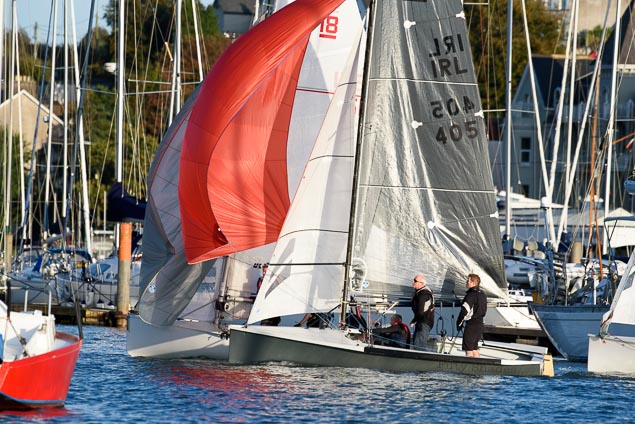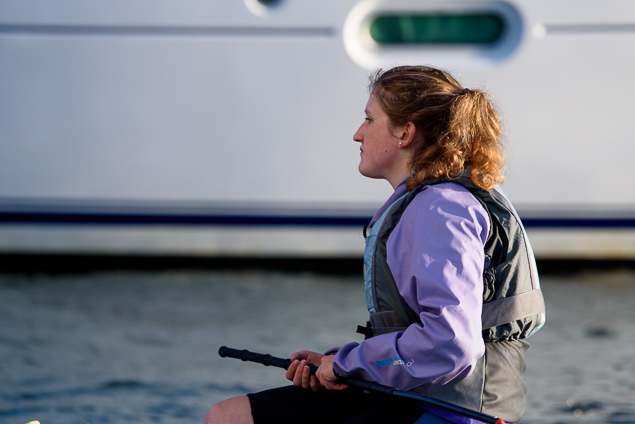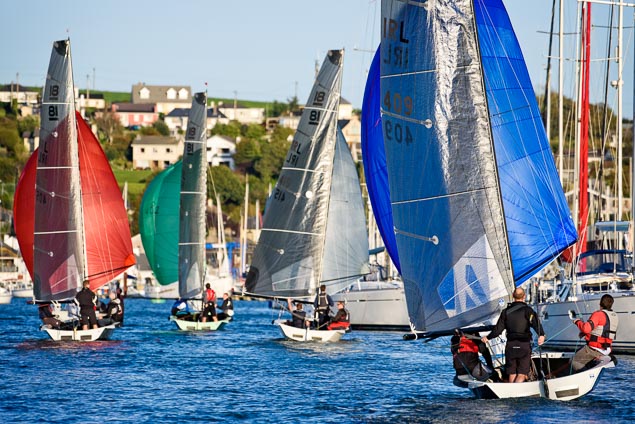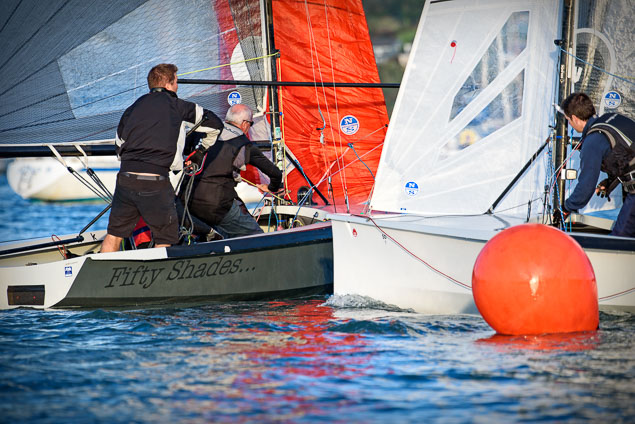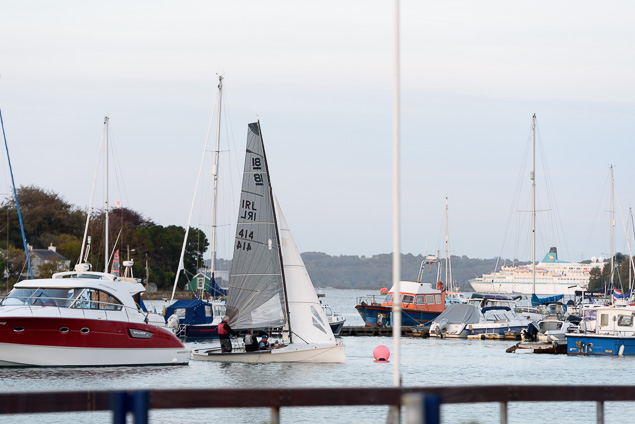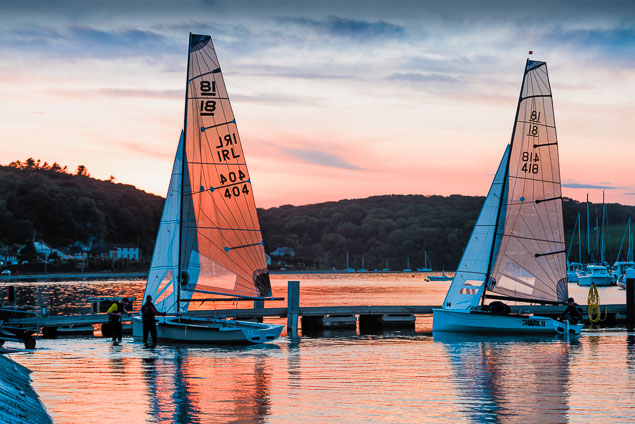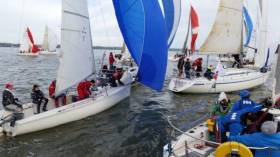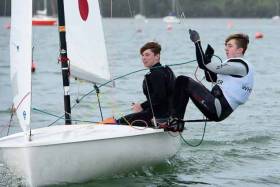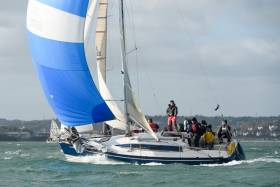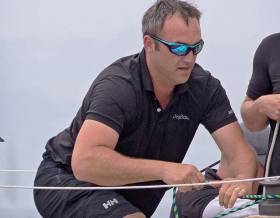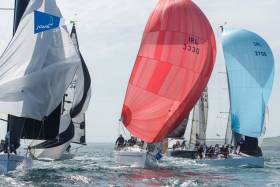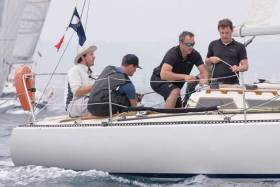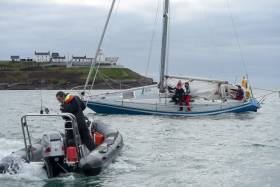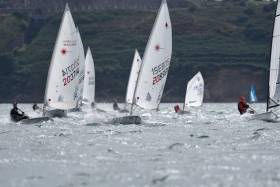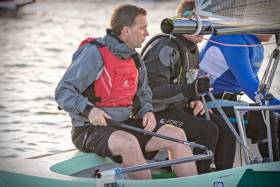Displaying items by tag: RCYC
Notice Of Race For 2018 Royal Cork Winter Series
The festive feelings are nearly upon us again and that means that we will be all braving the cold and crisp winter morning to compete in the O’Leary Insurance Group Winter Series at the Royal Cork Yacht Club.
From 4 November for six consecutive Sundays, the O’Leary Insurance Group Winter Series will be held at Royal Cork Yacht Club in Crosshaven.
The Royal Cork website has the Notice of Race and entry form, as well as a link to keep track of race results, and all at the club are looking forward to welcoming visiting boats for this year’s Winter Series.
Two years ago the O’Leary Family presented the Royal Cork with the perpetual Irish Mist trophy to honour the memory of Archie O’Leary, a past admiral of the club.
This trophy will be awarded for the best performing boat under IRC. The club thanks the O’Leary family for their generosity.
Royal Cork To Host 2019 Youth Sailing Pathway Nationals
#YouthSailing - The Royal Cork Yacht Club will host next year’s Irish Sailing Youth Pathway Championships, it has been announced.
The dates to save are 25-28 April 2019 when Ireland’s largest youth regatta comes to the world’s oldest yacht club.
It is also Irish Sailing’s primary talent-spotting event of the year — so is a must for budding high performance sailors looking to match the performance of Tralee Bay’s Justin Lucas at this year’s championships.
420 Dinghy Pair Win First Prize in Royal Cork Yacht Club's Horizon Energy PY 1000 Race
The fourth running of the Horizon Energy PY 1000 at Royal Cork Yacht Club in Crosshaven today saw James McCann and Harry Whitaker sailing a 420 dinghy win €700 first prize writes Bob Bateman.
Racing on the Owenabue river opposite the RCYC clubhouse, there was a perfect ENE wind about 16 knots for the river race but there were plenty of capsizes too.
The PY1000 Race Officer was John Crotty assisted by David Barry.
McCann and Whitaker got a great start and led at the first mark in the mixed fleet of dinghies.
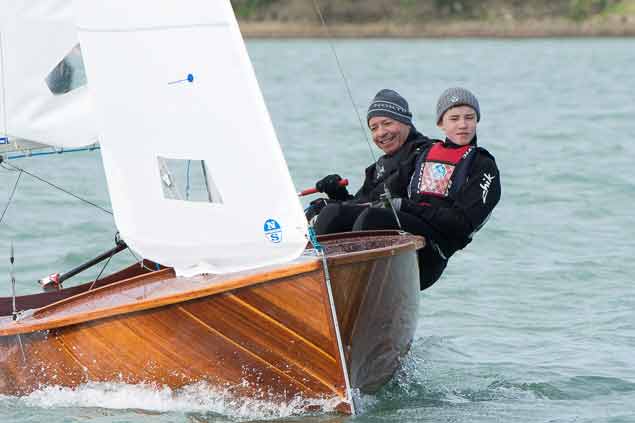 Nigel Young and his youngest son James, aged 11, were second in the RCYC PY Horizon 100 in a boat built by Nigel’s father, Don Young. The Young Family have a long association with the YWDB Class, as Don built his first boat back in the 60’s and since that time has built about six more boats. The UK based class are all cold molded smooth skin boats and all varnished, no painting allowed! Nigel’s current boat PaPa 2 has now won the YW Dayboat Championships three times Photo: Bob Bateman. See full photo gallery below
Nigel Young and his youngest son James, aged 11, were second in the RCYC PY Horizon 100 in a boat built by Nigel’s father, Don Young. The Young Family have a long association with the YWDB Class, as Don built his first boat back in the 60’s and since that time has built about six more boats. The UK based class are all cold molded smooth skin boats and all varnished, no painting allowed! Nigel’s current boat PaPa 2 has now won the YW Dayboat Championships three times Photo: Bob Bateman. See full photo gallery below
Second place (and a prize of €200 went to father and son combo of Nigel (of North Sails Ireland) and James Young racing the family's vintage Yachting World Day Boat (above).
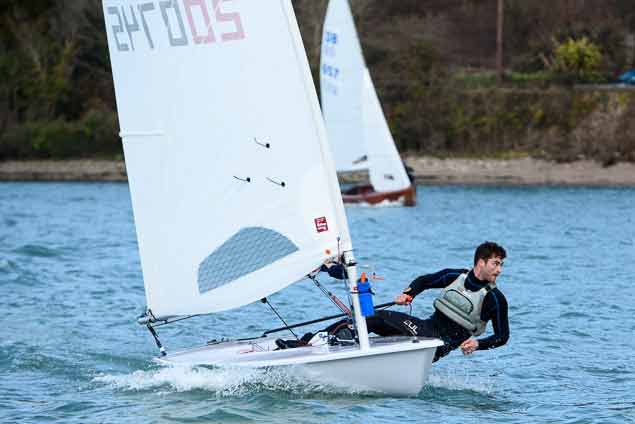 Kinsale Yacht Club's Darragh O Sullivan sailing a Laser was third. Photo Bob Bateman. See full photo gallery below
Kinsale Yacht Club's Darragh O Sullivan sailing a Laser was third. Photo Bob Bateman. See full photo gallery below
Third (€100) went to Kinsale Yacht Club's Darragh O Sullivan sailing a Laser (full rig), a previous winner of the event in 2016. On form O'Sullivan recently won Monkstown Bay's Laser Yard of Ale Winter League, also saield in Cork Harbour.
With a prize fund at stake, locally based International Judge Michael O'Connor was drafted in to police the Racing Rules of Sailing but there were no incidents to report.
The largest competing fleet was the 4.7 Lasers. The Mirror dinghy class made a determined effort to attend as their were none last year. Eoghan Duffy of Lough Ree Yacht Club (LRYC) and Cathal Langan Clontarf Yacht and Boat Club (CYBC) sailed as did Ben Graf and Hannagh Smyth of LRYC. And from Cove Sailing Club father and son Kieran and Sam Dorgan competed.
Again this year, return visitors Simon and Evie Crowe from Villiarstown on the River Blackwater in a GP14 competed.
Horizon Energy PY 1000 Race Photo gallery below by Bob Bateman
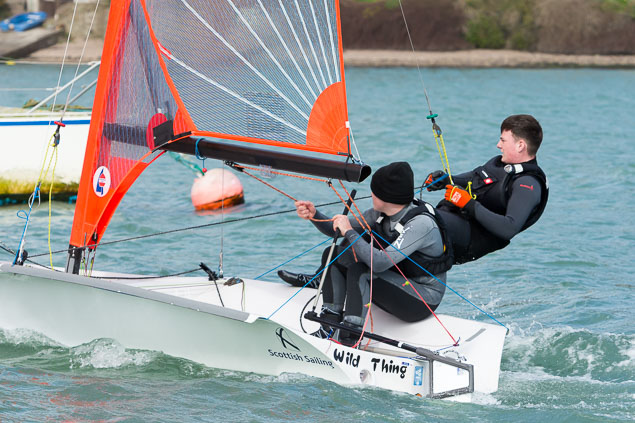
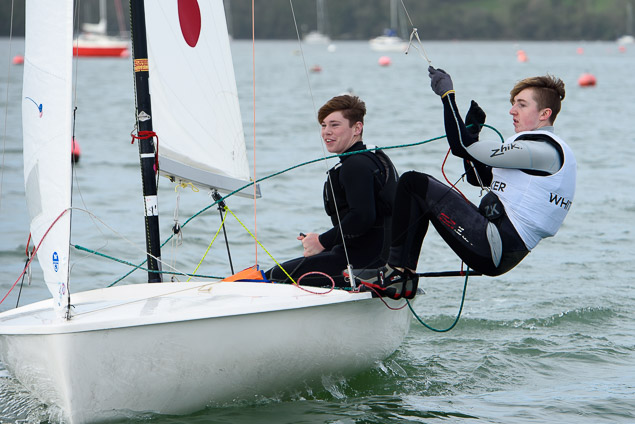
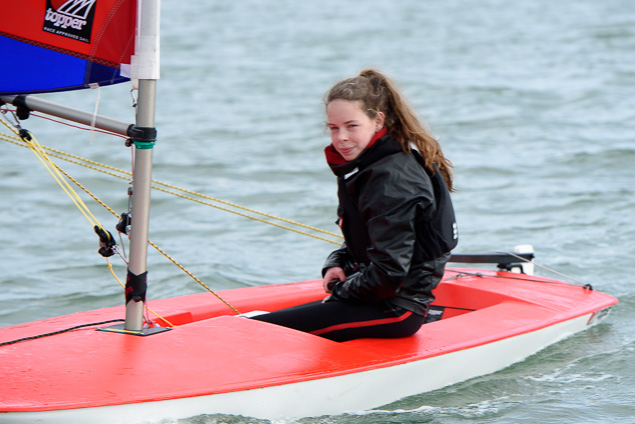
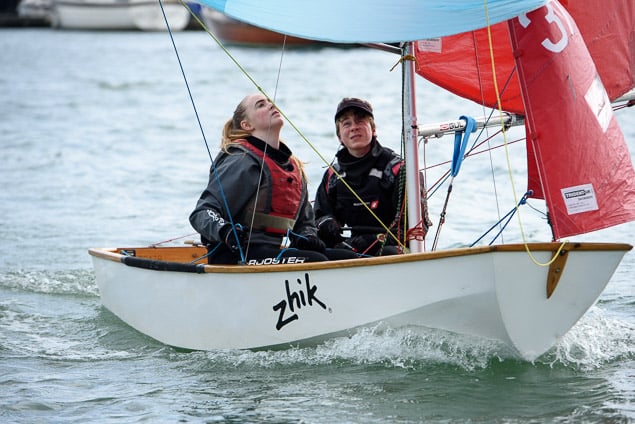
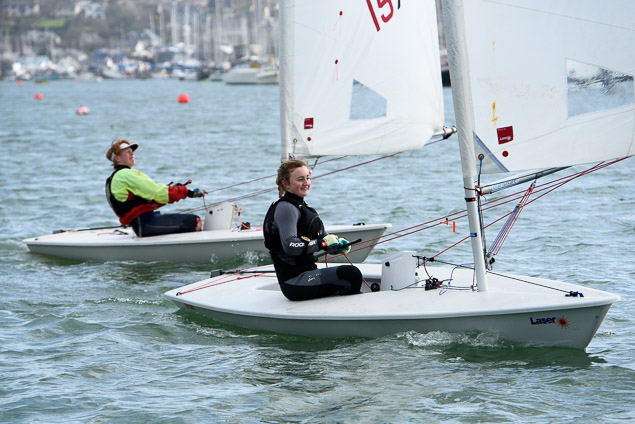
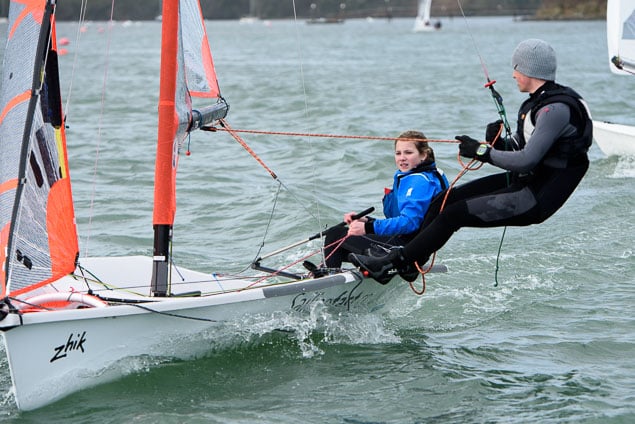
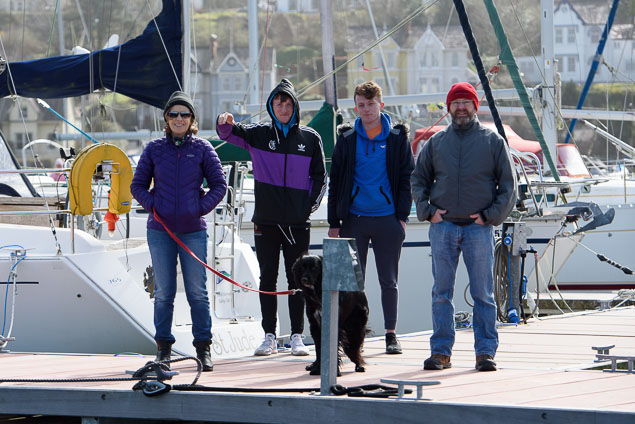
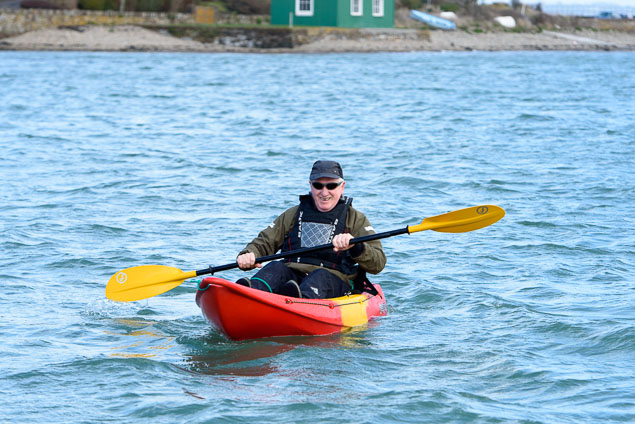
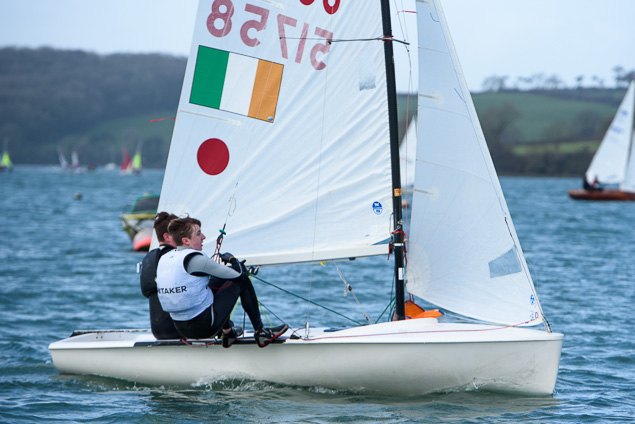
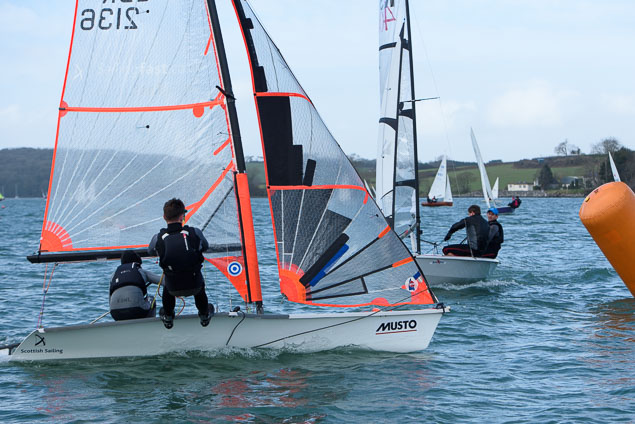
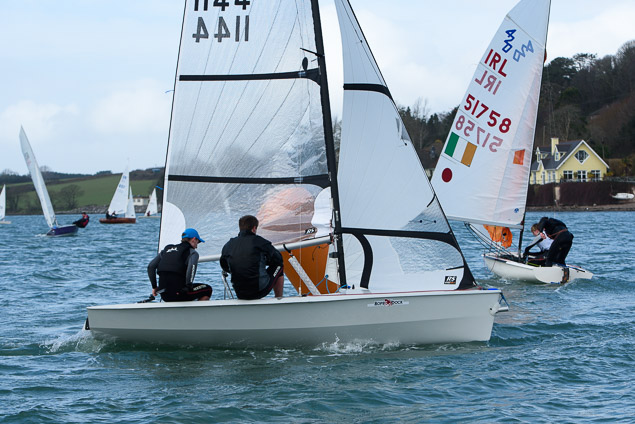
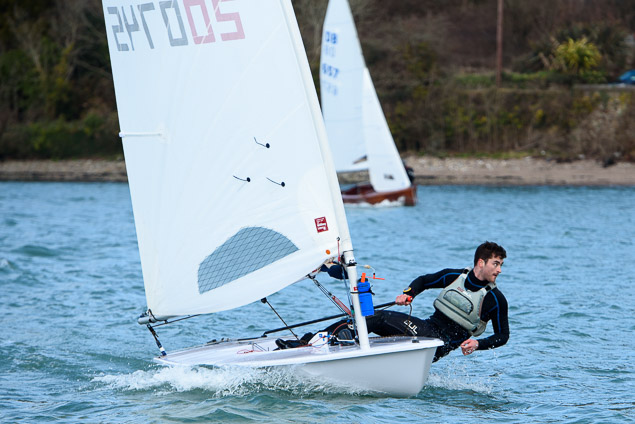
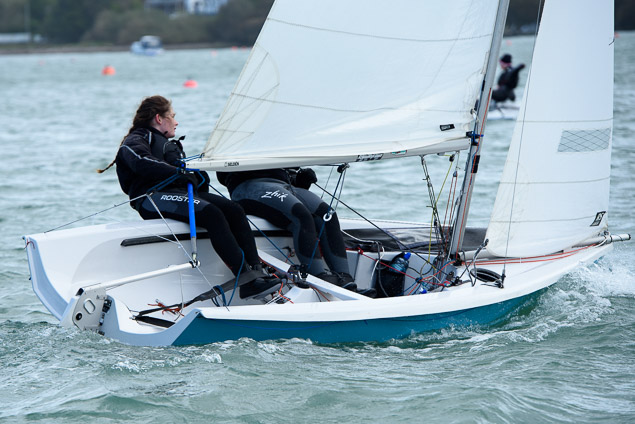
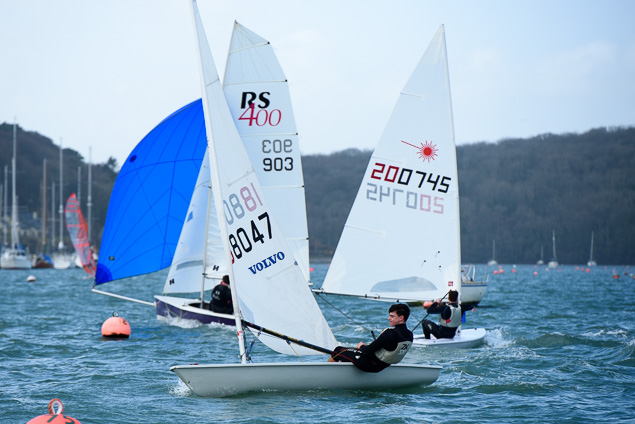
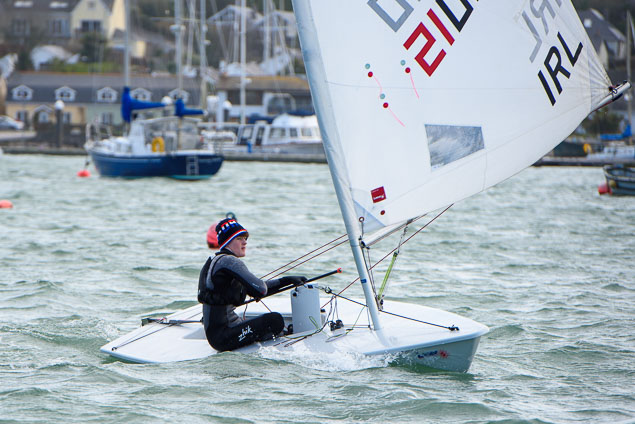
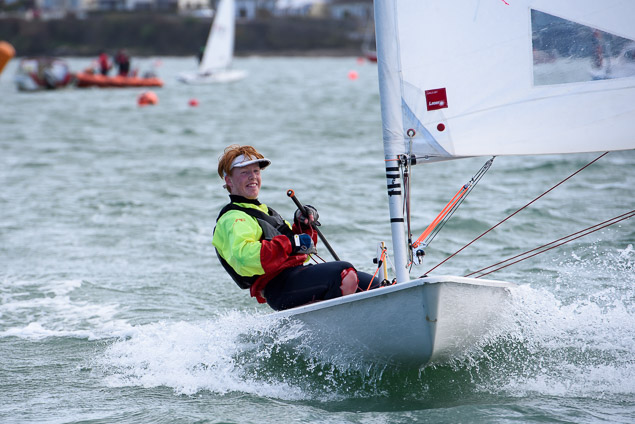
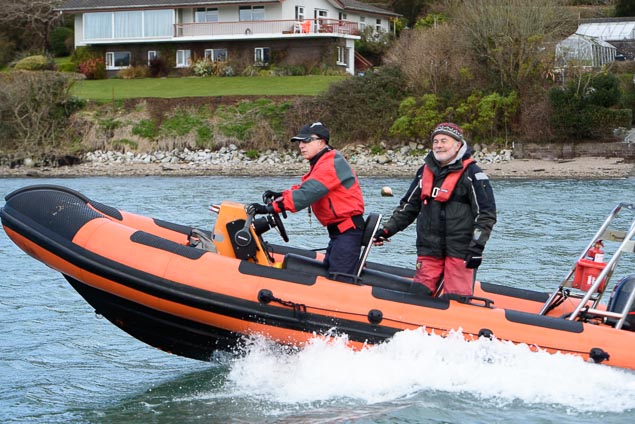
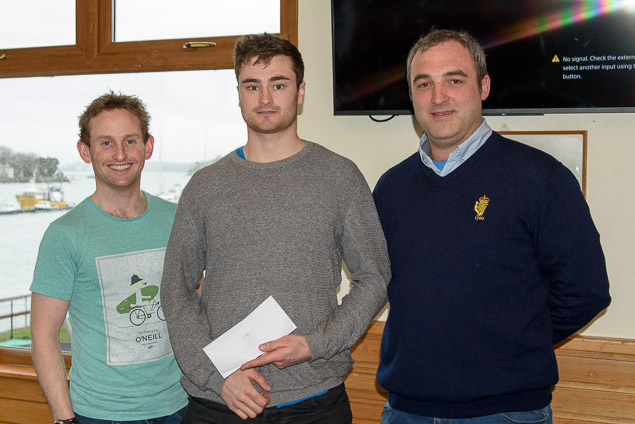
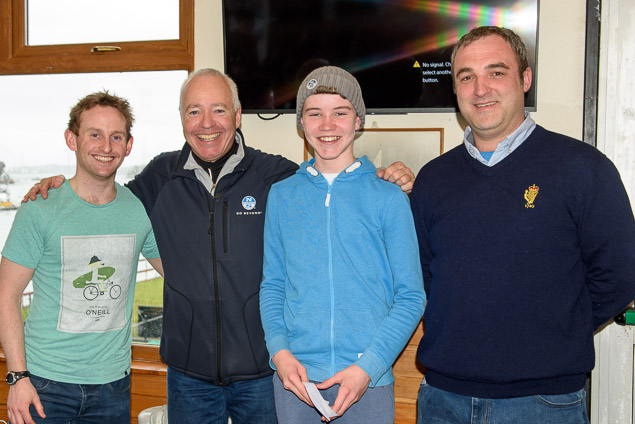
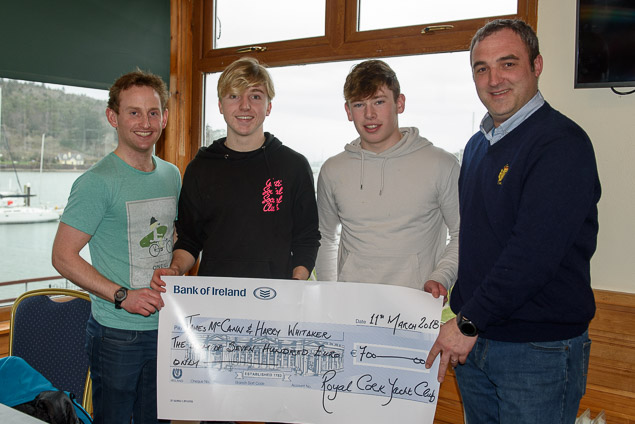
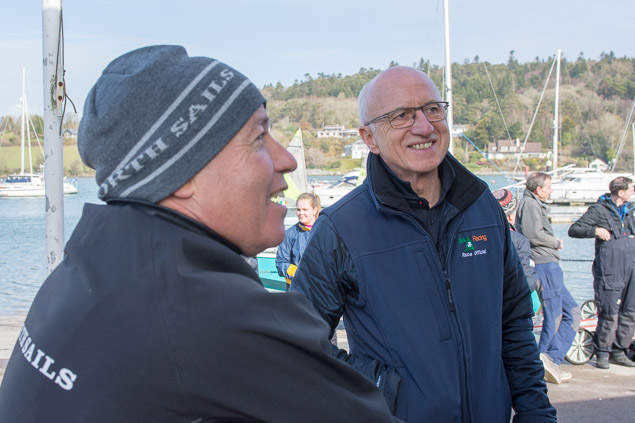
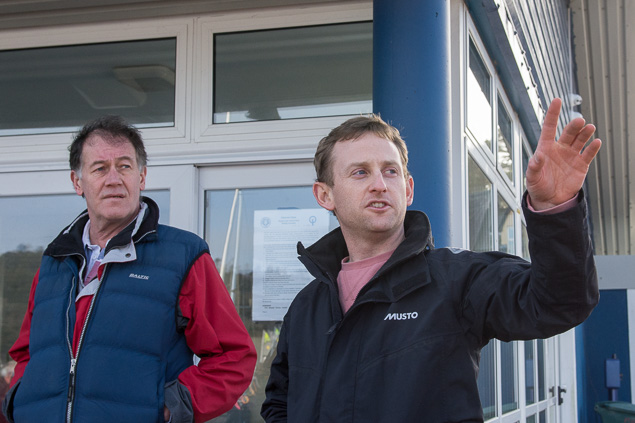
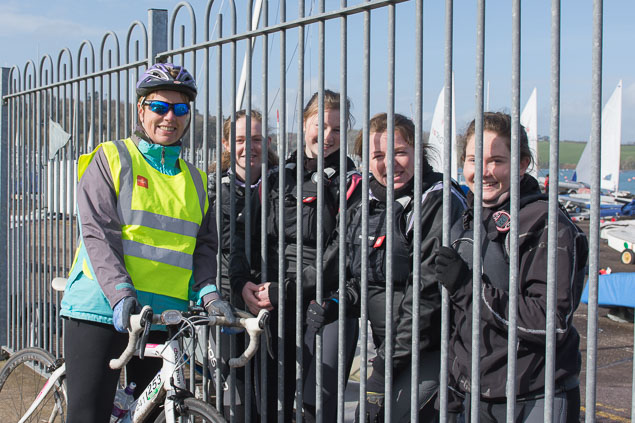
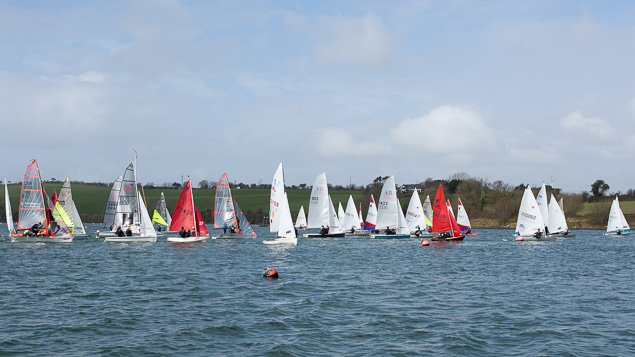
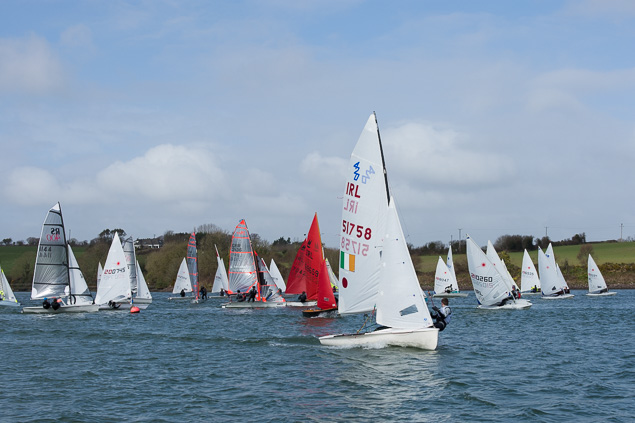
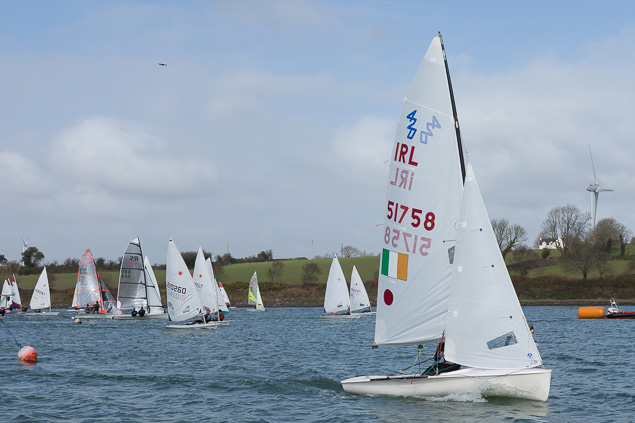
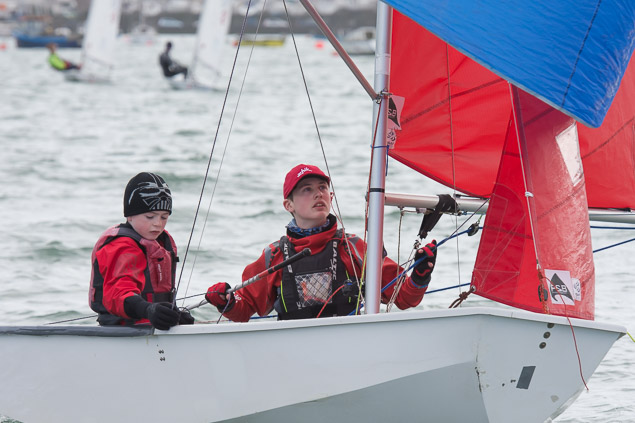
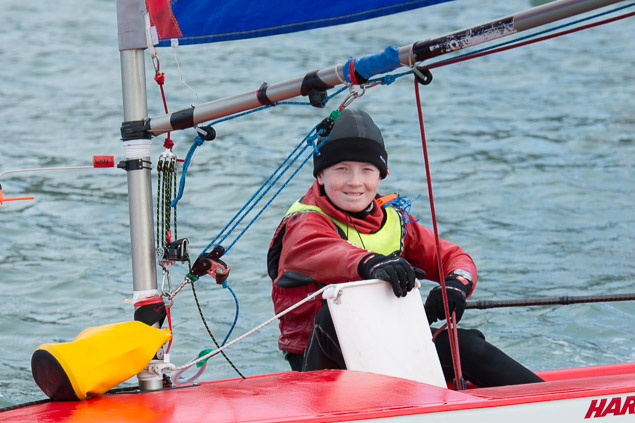
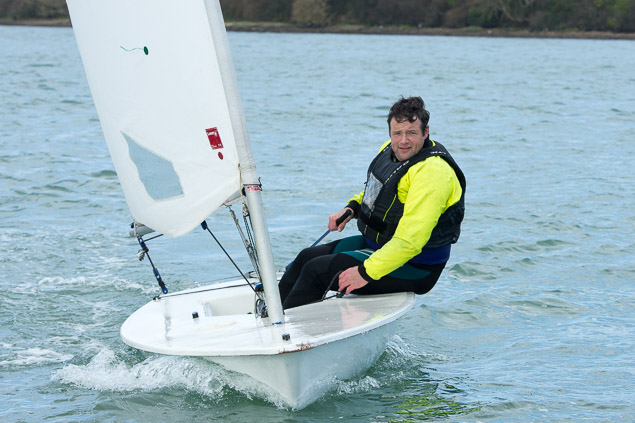
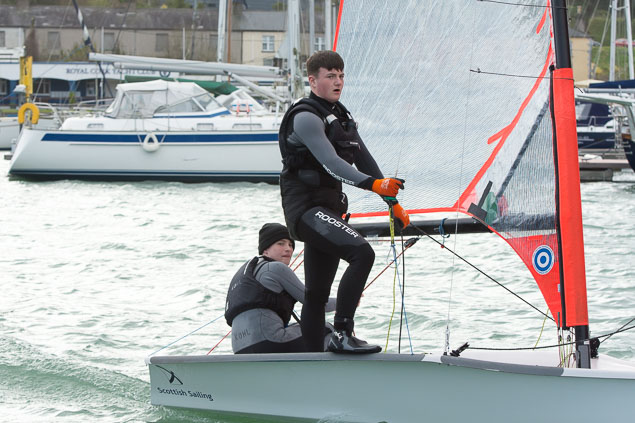
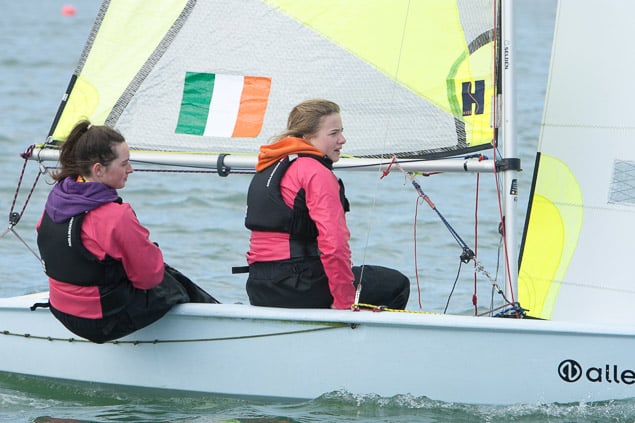
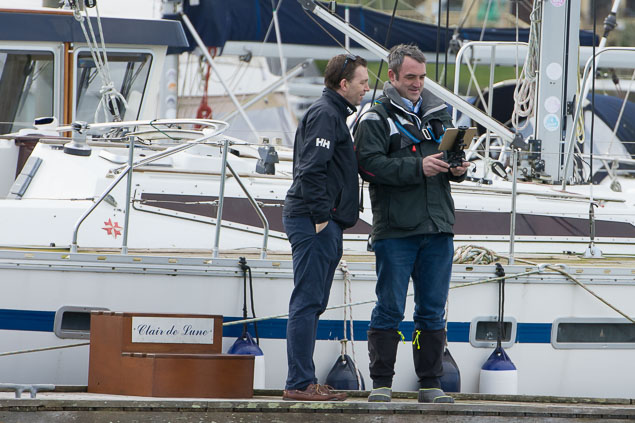
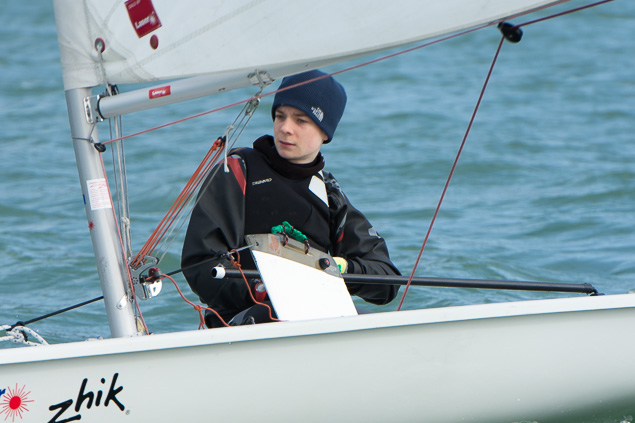
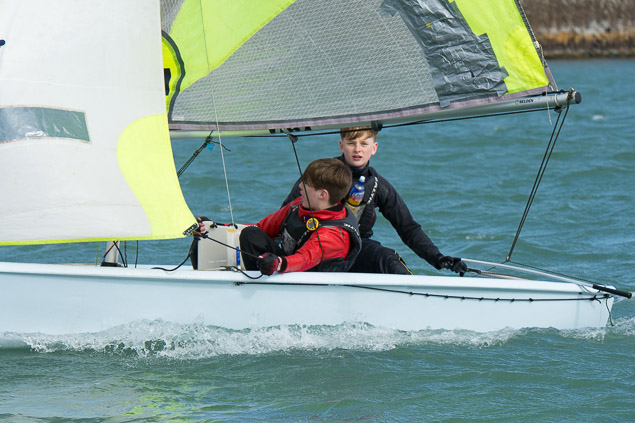
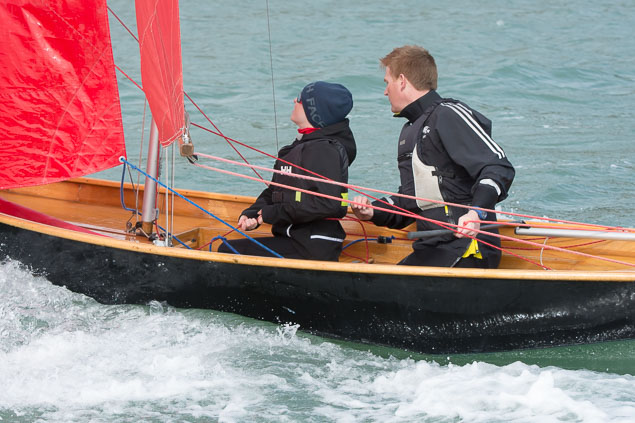
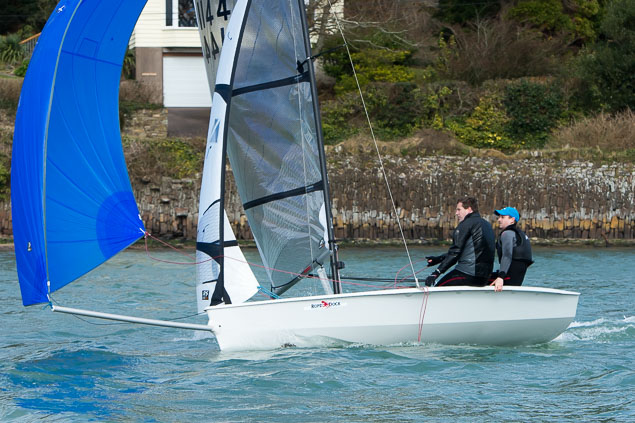
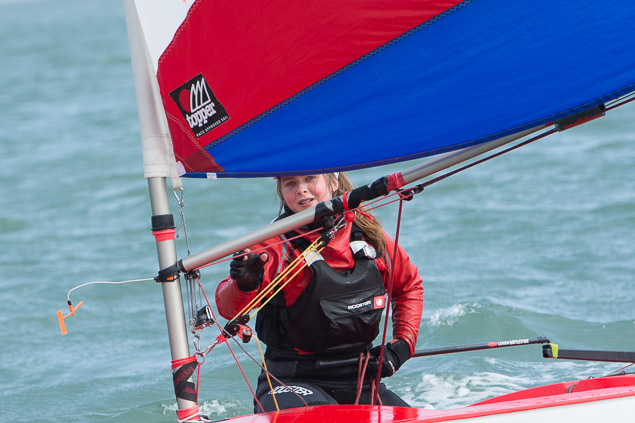
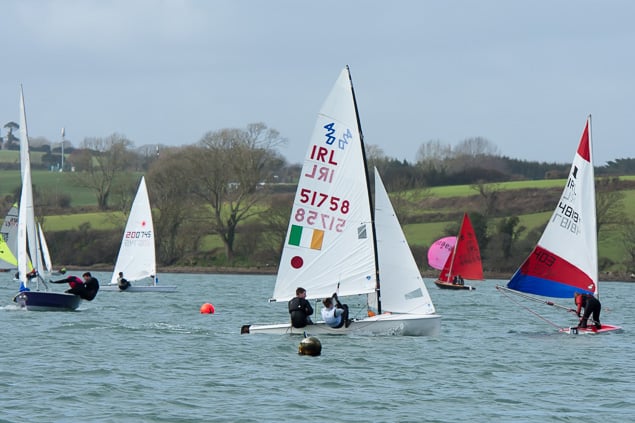
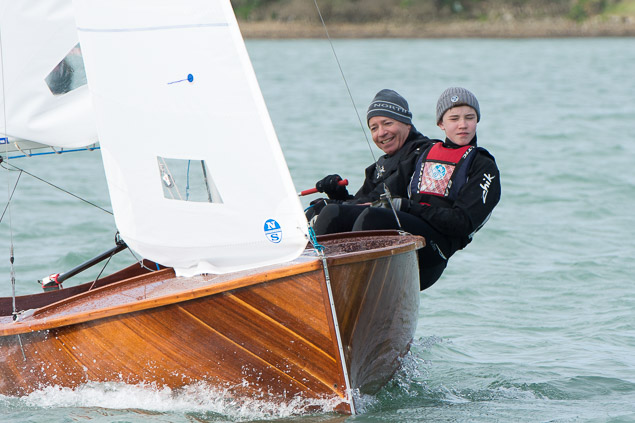
Crosbie's 'No Excuse' Wins Royal Cork Winter League on IRC
There was a ding dong battle for overall prizes at Royal Cork Yacht Club's O'Leary Insurances Winter League in Cork Harbour on Sunday won out by Ted and Tom Crosbie in the X-302, No Excuse writes Bob Bateman.
A festive spirit and 20–knot north–westerly winds brought the league to a buoyant close that followed an equally upbeat SCORA agm at RCYC at the weekend. More details and a podcast with Kieran O'Connell here.
No Excuse won the all–in 29–boat IRC division by one point having finished second in the final race to Coracle IV's (Kieran Collins) third place.
Coracle IV won the Echo division by a bigger margin.
Results are here
A cold but dry race started at seven degrees but by the finish had dropped to a chilly two degrees.
Race officers Clem and Wendy Mc Elligott Started from a Comitee boat at Cork beg with a Beat to No.8 buoy from there up to Cobh and then out of the harbour to No.3 buoy. Two rounds were sailed.
SCORA Meet Drives Cruiser Racing Forward on the South Coast
After a few negative years, resulting in some despondency about the future of cruiser racing, the annual meeting of SCORA, the South Coast Offshore Racing Association, had a more positive atmosphere, with a good attendance of skippers, boat owners and club representatives and quite a few practical suggestions about driving the racing scene forward.
SCORA Commodore Kieran O’Connell, who is also Rear Commodore for Keelboats at the Royal Cork YC in Crosshaven, has been talking up the levels of participation in the racing scene, so I was interested to find out if this was the case at the meeting.
In fact, it seemed to be so and was reflected with a wide-ranging debate, from developing Class 4 for the smallest boats, to bring more people into racing, to the length of races, a desire for more racing amongst Cork Harbour sailors outside of the harbour confines, developing more inter-club racing and how to bridge the gap where young sailors are lost to the sport, between dinghy racing and cruisers.
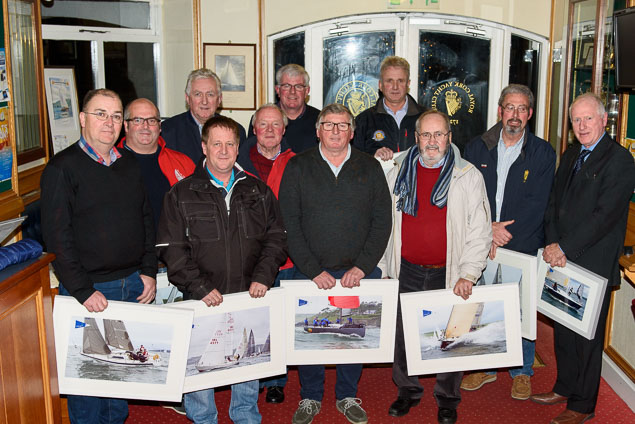 2017 Scora winners at RCYC Photo Bob Bateman
2017 Scora winners at RCYC Photo Bob Bateman
This practicality was reflected in a debate about the often contentious issue of boat handicaps. There was general agreement that the concentration on handicapping should primarily be at club level, where it could best be used to stimulate more participation locally and strengthen the clubs. Where boats wanted a national handicap to race in other locations, that would have to take account of and dealt with, but the emphasis should be in the clubs.
There was also a desire expressed for longer duration races, because shorter races discouraged participation.
Encouraging young people to move on from dinghies to cruiser racing was debated. “We are not getting enough young people from dinghies into cruiser racing,” was a generally agreed view. There is no obvious solution to this, but it was agreed that to encourage younger sailors into cruisers they had to be given specific roles aboard boats, not just brought onto a boat “to sit on the rail.”
Some things don’t change, but this meeting indicated that there is a lot of positive change and a better future ahead, it seems, for cruiser racing, which SCORA Commodore Kieran O’Connell says is on the increase, with more boats racing in the past season than previously.
Listen to Kieran O’Connell on my weekly Podcast below
SCORA Prizes To Be Awarded Tonight at Royal Cork Yacht Club
Connor Phelan's Jump juice will be among the winners saluted tonight at the South Coast Offshore Racing Association (SCORA) agm and prizegiving that will be held in the Royal Cork Yacht Club at 7.45pm writes Bob Bateman.
Cruiser–racer fortunes are on the up in Cork harbour according to SCORA Commodore Kieran O'Connell who gave a recent confident forecast that fleet numbers are on the 'way back'.
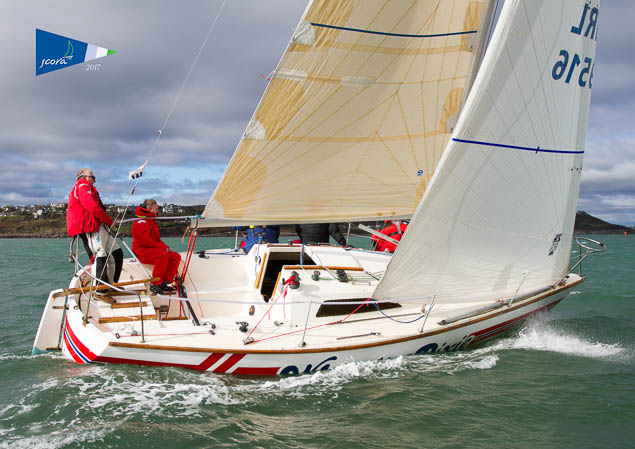 Tom McCarthy's Whistling Dixie was third in ECHO White Sails division. Photo: Bob Bateman
Tom McCarthy's Whistling Dixie was third in ECHO White Sails division. Photo: Bob Bateman
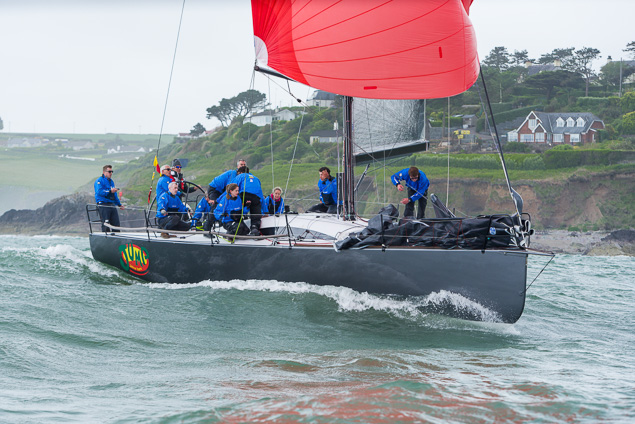 Conor Phelan's Jump juice is among the winners at SCORA tonight Photo: Bob Bateman
Conor Phelan's Jump juice is among the winners at SCORA tonight Photo: Bob Bateman
As well as Phelan's Class Zero and One victory, among tonight's other highlights is Tom Roche's first in ECHO in the same division with Kinsale Yacht Club entry Meridian.
RCYC entry Bad Company (Desmond, Ivers) was the IRC two winner with Waterford Harbour yacht Slack Alice skippered by Shane Statham second.
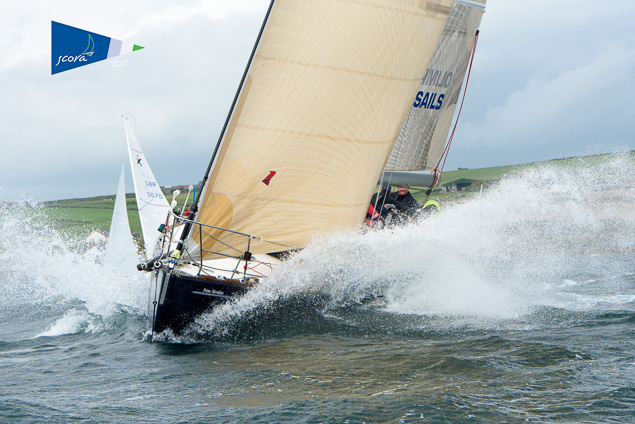 Kinsale Yacht Club entry Meridian (Tom Roche) Photo: Bob Bateman
Kinsale Yacht Club entry Meridian (Tom Roche) Photo: Bob Bateman
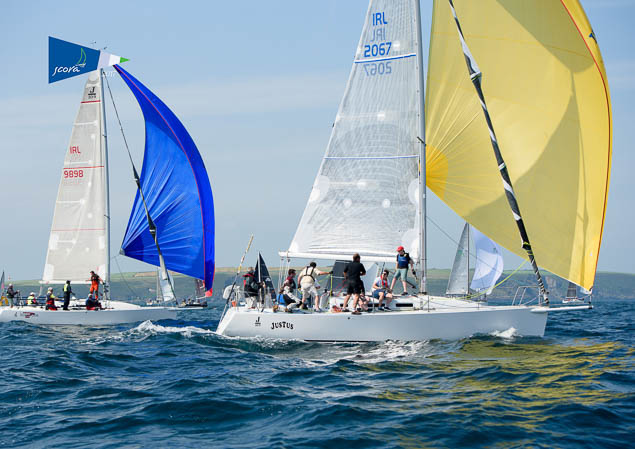 Dan Buckley's Justus (yellow spinnaker) was third in IRC Zero Photo: Bob Bateman
Dan Buckley's Justus (yellow spinnaker) was third in IRC Zero Photo: Bob Bateman
A full list of prizewinners are below.
Among the matters for discussion at tonight' meeting will be the perennial question of Class Bands for handicapping. This is because the IRC certs change and consequently bands need updating on a regular basis.
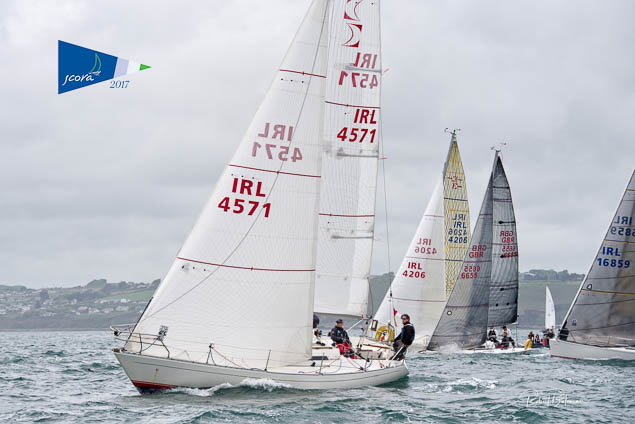 Waterford Harbour Sailing Club's Flyover, a Sigma 33, skippered by David Marchant was the IRC 3 winner Photo: Bob Bateman
Waterford Harbour Sailing Club's Flyover, a Sigma 33, skippered by David Marchant was the IRC 3 winner Photo: Bob Bateman
Agenda
1. Finance
2. SCORA Leagues
3. Combine club league in Cork
4. Class handicap bands for 2018
5. ICRA Training Grants
6. ICRA Crew Point
7. AOB
8. Prize Giving
List of 2017 prizewinners: Scora league
Jump juice Connor Phelan 1st IRC 0/1 2nd Echo
Meridian Tom Roche 1st Echo 0/1 2rd Echo
Justus Dan Buckley 3rd IRC 0/1 3rd Echo
Slack Alice Shane Statham 2nd IRC 2 3rd Echo
Bad Company Desmond,Ivers 1st IRC 2 2nd Echo
Artful Dodger Finbarr O Regan 1st Echo 2 3rd IRC
Cracker Denis Byrne 3rd Echo 3
Ye Gotta Wanna Dave Lane and Sinead Enright 3rd IRC 3
No Gnomes Leonard Donnery 2nd IRC 3 2nd Echo
Flyover David Marchant 1st IRC 3 1st Echo
Nieulargo Denis Murphy 1st IRC W/S 1 2nd Echo
Indulgence Aidan Heffernan 1st Echo W/S 1 2nd IRC
Magnet Kieran O Brien 3rd IRC W/S 1 3rd Echo
Prometheus Paul Murray 1st IRC W/S 2
Bandit Richard Leonard 2nd IRC W/S 2 2nd Echo
Whistling Dixie Tom Mc Carthy 3rd Echo W/S 2
Aramis Pat Vaughan 1st Echo W/S 2 2nd IRC
Scora Cork Harbour league
Alpacca Paul Tingle 1st all in IRC
No Gnomes Leonard Donnery 1st all in Echo
Indulgance Aidan Heffernan 1st W/S IRC
Sea Dragon Frank Caul 1st W/S Echo
'Cruiser Racing is on the Way Back'– Royal Cork's Kieran O'Connell
Interest in keelboat racing is increasing. Cruiser racing is on the way back! So says the Royal Cork Yacht Club’s Rear Admiral for Keelboats, Kieran O’Connell, writes Tom MacSweeney.
Clubs around the coast have experienced a fall-off in racing numbers at cruiser events over the past few years. ‘Keelboats,’ a traditional Class description, have changed fundamentally in design as cruiser/racers have evolved since they were first labelled as ‘keelboat racing’.
“There was a decline, numbers have been down, but this season there has been an improvement and an upsurge in interest,” O’Connell told the prizewinning club racers (See Afloat's Gallery here) at the annual presentation of prizes when he pointed to the turn-out for the Autumn series/October League and what has been a surprisingly big entry for the November/December Winter League which is still underway at the club, in which an average 30 yachts are on the water.
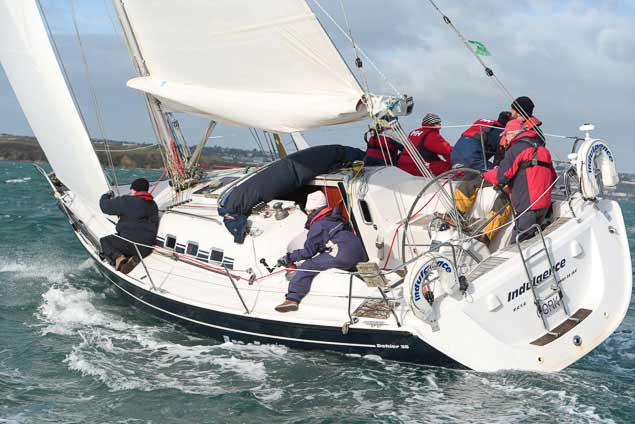 Cruiser racing on the up – Cork Harbour has seen strong turnouts for its Winter sailing season. Photo: Bob Bateman
Cruiser racing on the up – Cork Harbour has seen strong turnouts for its Winter sailing season. Photo: Bob Bateman
“This is encouraging and indicates that interest and participation in cruiser racing is on the up. It has turned around after a few difficult years.”
Kieran O’Connell is also Commodore of the South Coast Offshore Racing Association (SCORA) which combines Southern clubs planning events for the annual sailing calendar.
To general applause, he told the RCYC cruiser racers that he intended to stay in office to steer ‘keelboat’ racing for a while yet. That is good news for the cruiser racing, as he has put a lot of work into orchestrating its revival.
More in the weekly Sailing Column in the Cork Evening Echo.
Jelly Baby Wins RCYC Wins Winter League Race, Club Recovers Yacht Aground off Roches Point
A yacht that went aground during racing in the O'Leary Insurance Winter League in Cork Harbour yesterday was successfully recovered by fellow competitors and Royal Cork Yacht Club officials writes Bob Bateman.
The 38–foot yacht that was competing in the White Sails division of the league when it hit a rocky area area known as 'Chicago Knoll' in the vicinty of Roches Point.
Although there was a rising tide, a lee shore presented further potential difficulties for the stricken boat. The RNLI were called at 1.30pm.
Some quick thinking by RCYC's Michael Murphy got a line on to the yacht. Sails were taken down and furled and RCYC Rear Admiral Kieran O'Connell took a halyard from the tip of the yacht's mast in an effort to pull the yacht over to release her. Happily, it was a tactic that worked and Blue Oyster floated off the rocky area without any 'structural damage', according to an RNLI report.
Crosshaven RNLI, assisted in escorting the Blue Oyster back to the Royal Cork marina.
Meanwhile, conditions for race three, at the halfway point of the series, dawned with mist and zero wind. However, by start time a 10–knot south westerly breeze had filled in.
Scroll down for a gallery of images below.
Racing started off a committee boat at Corkbeg and the all–in fleet sailed to cage (P), No3 Buoy (S), Wno6 (P), Cage (S), No9 (S) No5 (S) and a finish at Cage.
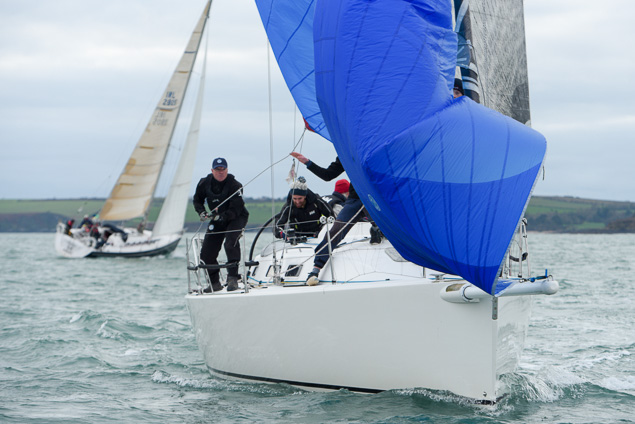 Jelly Baby won the IRC race Photo Bob Bateman. Scroll down for photo gallery
Jelly Baby won the IRC race Photo Bob Bateman. Scroll down for photo gallery
Leading the race saw the J109 Jelly Baby Brian Jones, with Nigel Young of North sails onboard, leading at the Cage buoy followed by 1720 T Bone Tom Durcan/Clive O'Shea then Paul and Deirdre Tingle's Alpaca. Jelly Baby went on to win today's race IRC division.
Last year the O'Leary Family presented the Club with the perpetual Irish Mist trophy to honour the memory of Archie O'Leary, a past Admiral of the Royal Cork.
This trophy will be awarded for the best performing boat under IRC of the League.
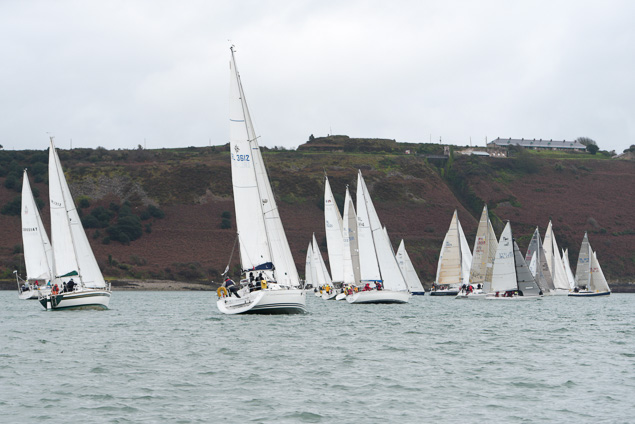
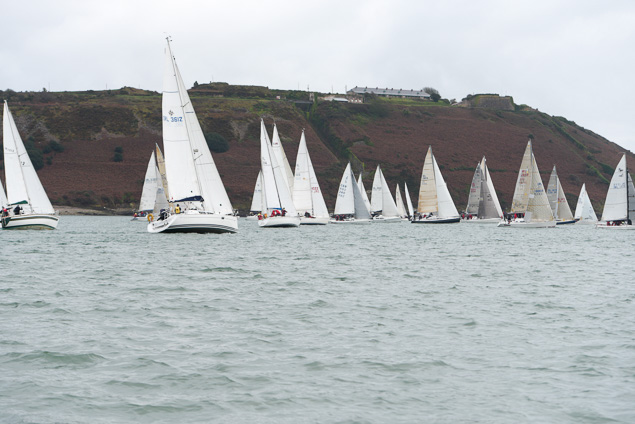
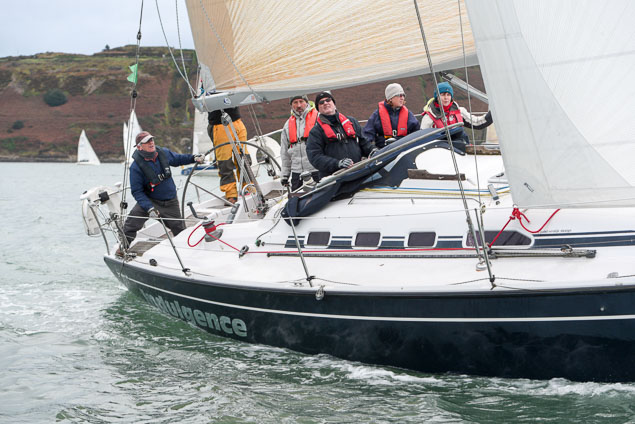
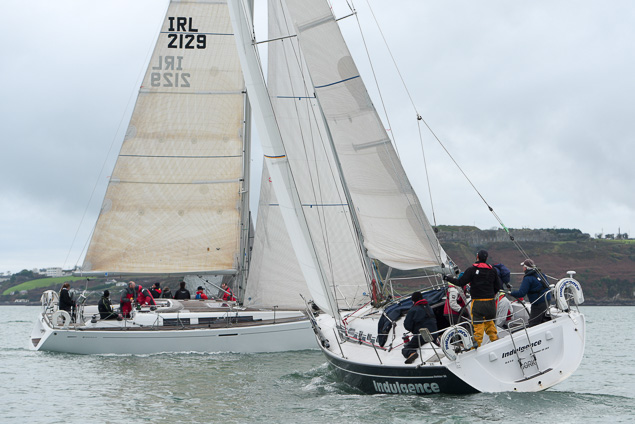
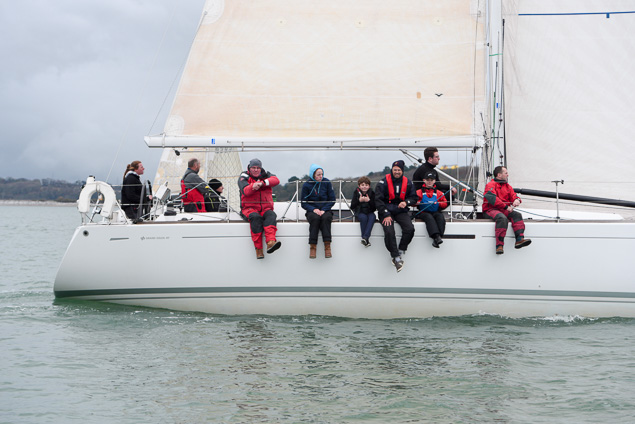
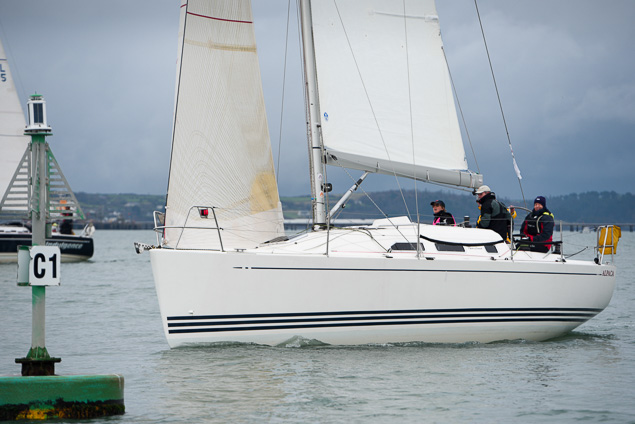
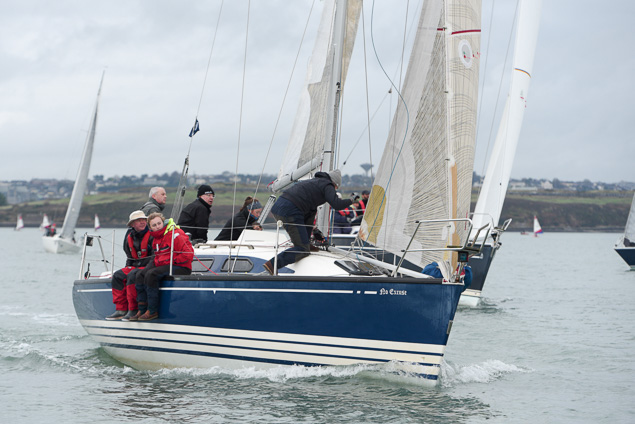
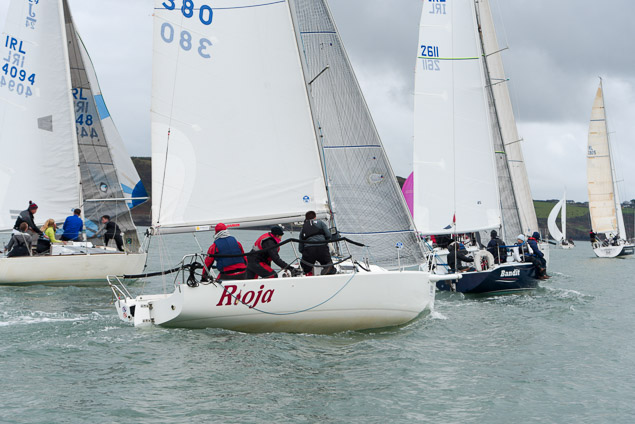
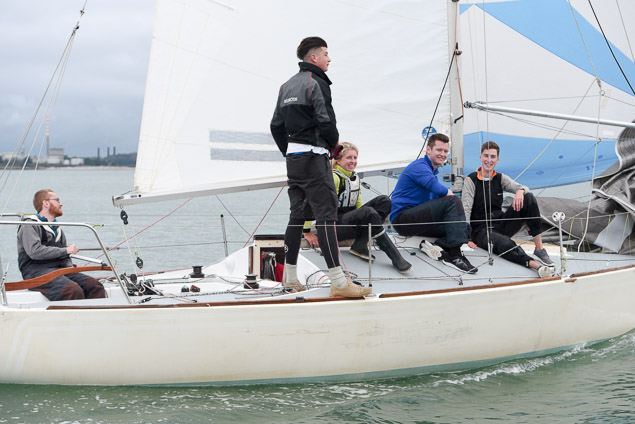
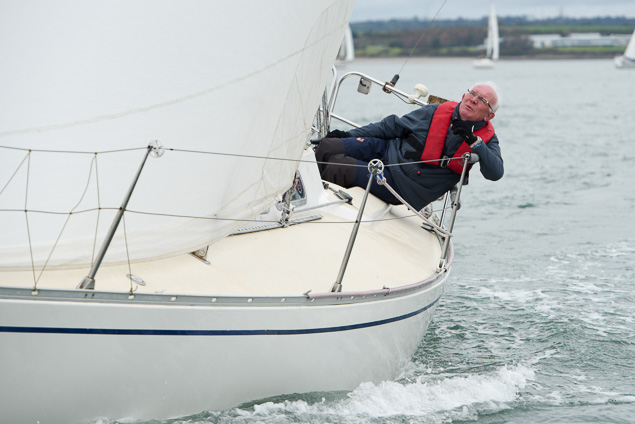
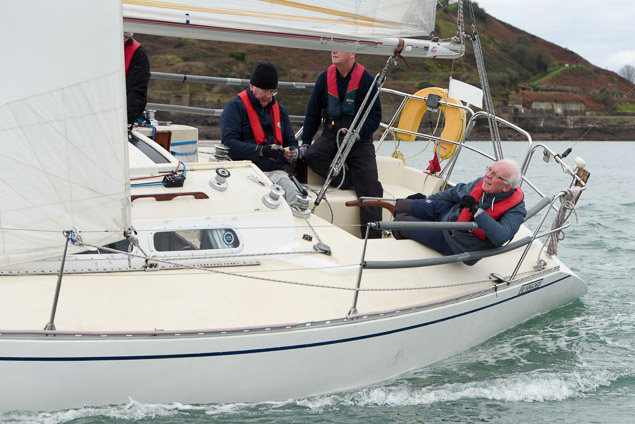
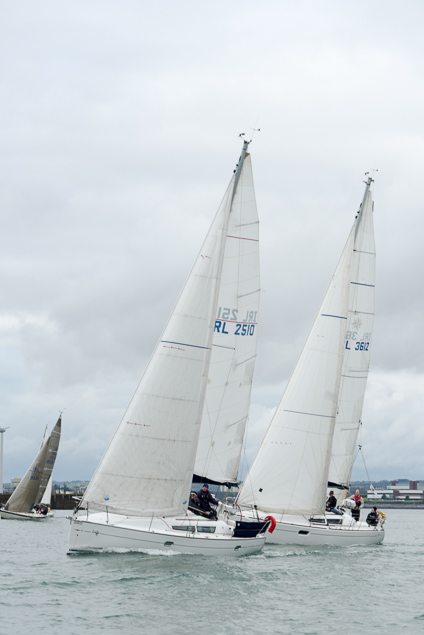
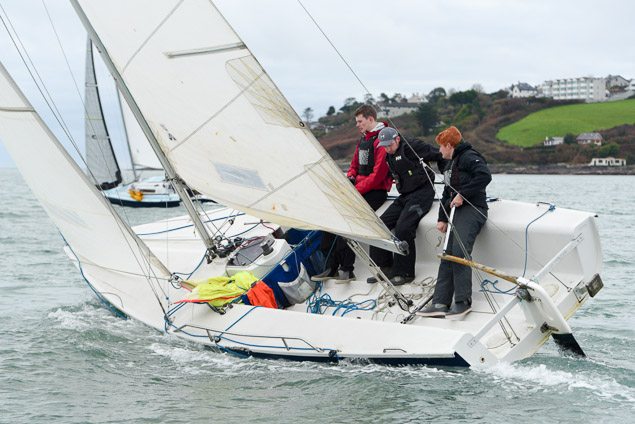
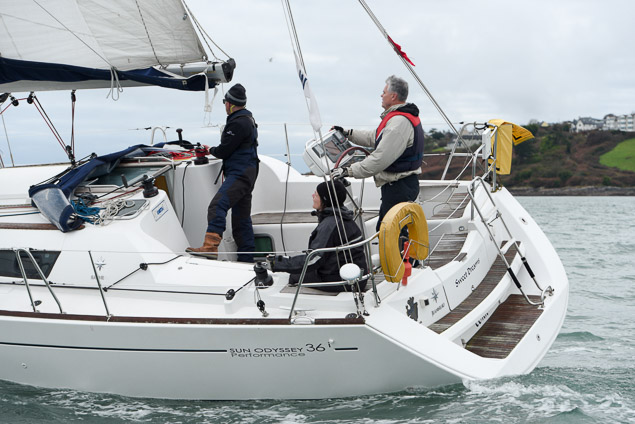
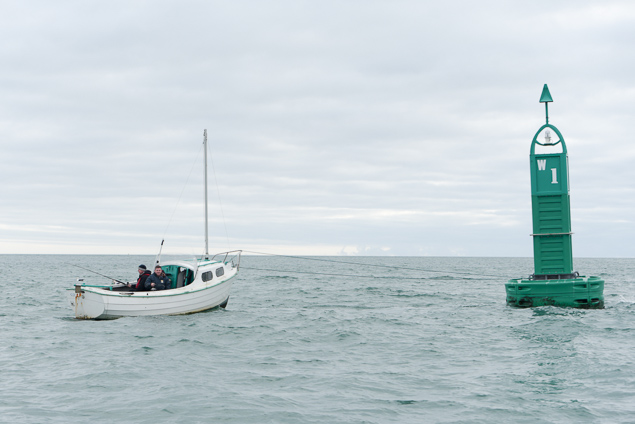
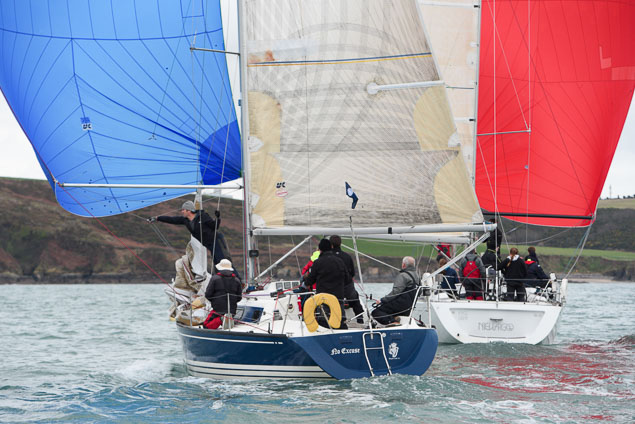
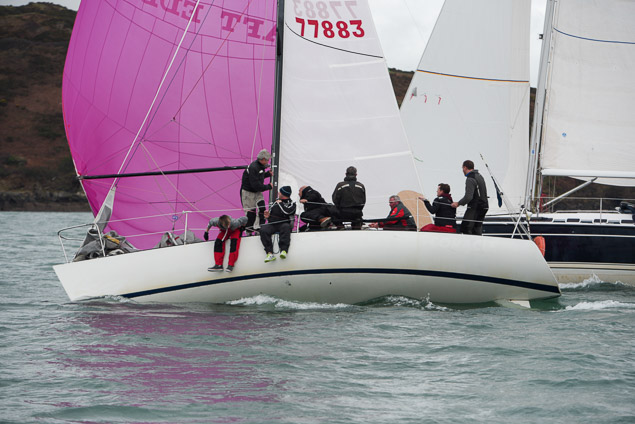
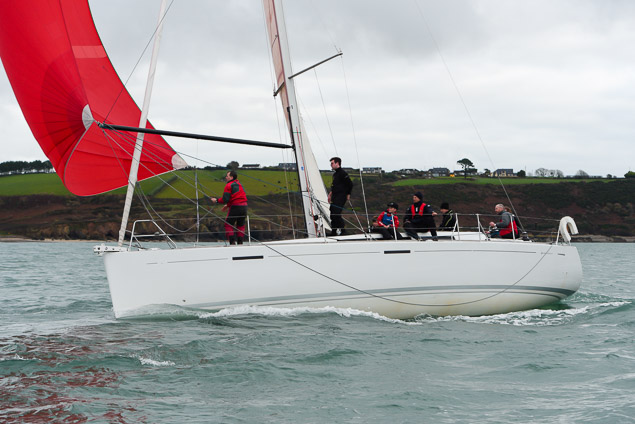
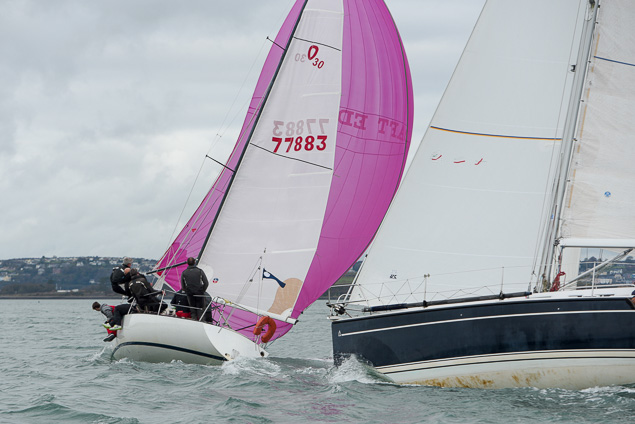
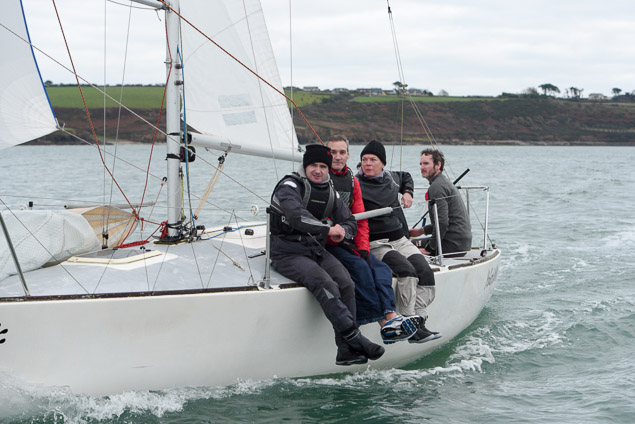
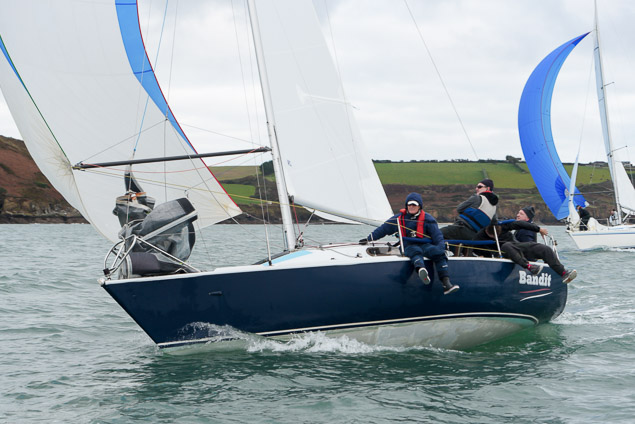
Royal Cork Yacht Club's Rapid Rise In Dinghy Sailing Activity
As the debate rumbles on as to how we can engage more young people in the sport of sailing, the Royal Cork Yacht Club has witnessed 'tremendous growth' in junior dinghy sailing activity across every level over the last eighteen months writes RCYC Rear Admiral, Stephen O'Shaugnessy.
The club currently boasts some of the largest active dinghy fleets in the country; The Optimist class for example, has in excess of seventy sailors right across an age range from 8 -15 years old. Equally, the club Laser and Topper fleets have also seen rapid growth in numbers participating on a consistent basis at both club and regional level.
In tandem to all this single–handed dinghy activity, there is a growing fleet of RS boats being purchased by members and this appears to be filling a gap to ensure that junior members in their late teenage years keep sailing. While this is very much work in progress, the signs are positive for further growth for two handed sailing across a number of classes, including a possible 29er class.
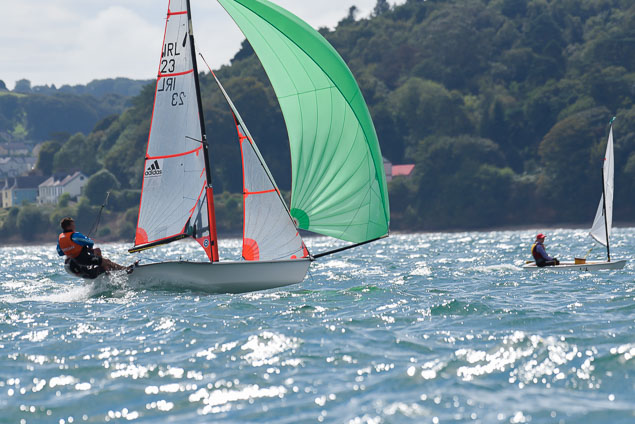 Signs are positive for further double–handed dinghy growth in classes such as the youth 29er skiff. Photo: Bob Bateman
Signs are positive for further double–handed dinghy growth in classes such as the youth 29er skiff. Photo: Bob Bateman
The result of all this is an average of ninety dinghies currently taking to the water at weekends to take part in club league racing a coaching programmes.
So what is driving this growth? A very focused junior dinghy committee ensures that every base is covered when it comes to our junior activity in the club. Underlying all our activity is the fundamental belief that every junior member is a fantastic asset to the club, irrespective of their age, ability or ambition. All our club coaching programmes and courses are structured in such a manner that the sailors within each fleet feel a strong sense of identity of being part of a larger team even though they each may well have different goals or objectives in terms of competing at various levels or simply sailing for the love of sailing'.
The spin off from all this activity has also helped towards a substantial increase in those participating in their club summer sailing courses. This, coupled with the fact that a growing number of family members are encouraging their children to be more involved in healthy outdoor activity during the summer months has led to one of the largest summer programmes in the country this year with in excess of hundred and seventy participants.
Looking to the future, the hope is to further build on the philosophy that as a sport, sailing is a skill for life that can be enjoyed at any stage and at any age and whatever ability.
There is clearly a growing demand across Ireland for dinghy sailing at every level and the club looks forward to continued growth in the build up to its 300th anniversary in 2020.
Royal Cork National 18 Season Concludes with Light Air Crews Race
Last Friday evening saw the last races of the National 18 season that consisted of two races in front of Royal Cork Yacht Club and with buoys at the rear of the RCYC marina for an unusual course configuration on the Owenabue river in light winds and officiated by race officer Tommy Dwyer.
The evening also served as the National 18 crews race with some familiar faces in some unfamiliar roles. Tom Crosbie was sailing a borrowed boat as he had sold his beloved 'The Good Wife'. RCYC General Manager Gavin Deane was also helming an entry as was forthcoming Junior All Ireland finalist, Chris Bateman.
Scroll down for photo gallery below by Bob Bateman
